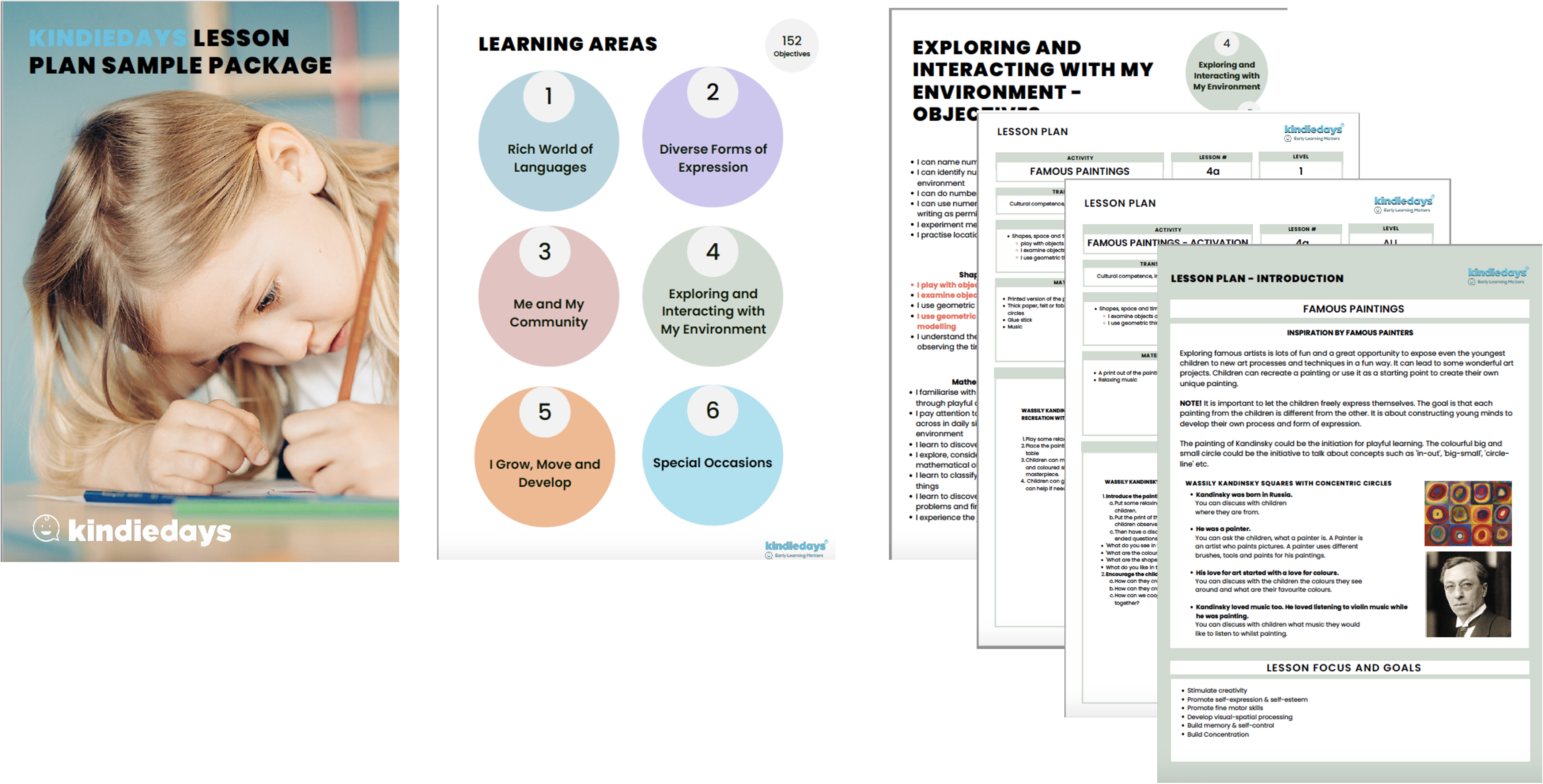A new year and new ideas! Even the greatest ideas are nothing if they are not well organized and marked down.
.png)
- Brainstorm with the team
When thinking of activities and events for the coming year, it would be nice if every member of staff had something to look forward to. A good system is to brainstorm together with your team and think of what everyone would like to include for the coming term.
It would be great if everyone said their own ideas out loud, this way every staff member gets a chance to participate equally and bring out their individual interests and strengths.
Maybe one teacher loves puppet theater and wants to organize a puppet show for children on Valentine's day? Or one is eager to bake with the children and would like to organize a cake buffet at the kindergarten for all the families to enjoy? Whatever the teacher's personal passion, it can surely be adjusted to your early education center's plan!
Kindiedays Lesson Plans support all learning areas!
- Ask from families
It is also nice to ask for ideas from the families, about what would they like to see during spring term 2023. Perhaps they would be eager to join a theme week of professions? Some parents could prepare a short presentation and tell about their own work for the children.
- Find out children's wishes
And of course, also children's wishes need to be included! Organize for example a "children's meeting" where you go through the agenda for 2023 and write down ideas that come from children. Or have a crafting session so that every group makes their "dream board" full of activities and things they would love to have in their preschool or kindergarten.
Perhaps children would love to have a pajama day? Or go to see a concert? Disco party? Children surely are full of ideas once they get to share them.
- Mark down yearly celebrations
Every season brings also yearly celebrations along, which can be included in your preschool's calendar. Depending on traditions, seasons, and cultures, the traditions may vary between schools a lot. It is a smart idea to combine celebrations from different cultures into your preschool's calendar so that children learn about diversity.
Here are some examples of celebrations during the first months of 2023:
.png)



.png)
.png)